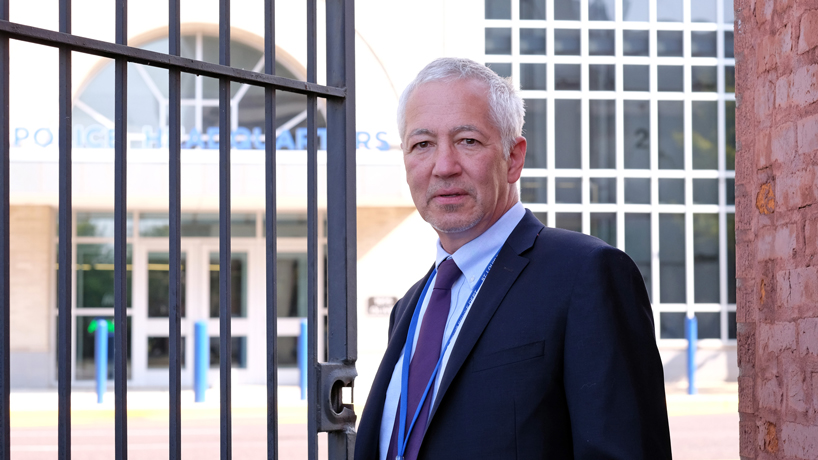
Academic Influence ranked Curators’ Distinguished Professor Emeritus Richard Rosenfeld fifth on its list of Top Influential Criminologists Today. (Photo by August Jennewein)
Richard Rosenfeld is a former president of the American Society of Criminology, was one of fewer than 10 social scientists voted to the Council on Criminal Justice’s inaugural membership class and is quoted regularly by news outlets around the country interpreting crime trends and crime data.
So, it’s not surprising that the Curators’ Distinguished Professor Emeritus of Criminology and Criminal Justice at the University of Missouri–St. Louis would be included among any group of influential criminologists.
That was the case again recently when Academic Influence ranked Rosenfeld fifth in the world on its list of Top Influential Criminologists Today.
Academic Influence brings together academics and data scientists and, according to its website, aims to provide “an objective, non-gameable influence-based ranking for the people, schools, and disciplinary programs that make up higher education.” Its ranking technology uses machine learning to measure the impact of work produced by leading academic influencers.
Rosenfeld has been a leading researcher on crime control, criminal justice policy, the social sources of crime and statistical trends in criminal justice for more than 30 years.
He’s helped author eight books, published nearly 100 journal articles, produced dozens of book chapters and served as an investigator on more than 20 externally funded grants.
He has worked with the St. Louis Metropolitan Police Department to examine violent crime in the city, identifying geographic areas with higher concentrations of violent crime and studying the correlation between crime and socioeconomic conditions.
In the wake of the shooting of Michael Brown and other high-profile killings involving police in 2016, Rosenfeld examined surges in violent crime and the so-called Ferguson Effect for the National Institute of Justice.
He has served on the Science Advisory Board of the Office of Justice Programs in the U.S. Department of Justice, and the Council on Criminal Justice solicited him to re-examine the legacy of the Violent Crime Control and Law Enforcement Act of 1994, better known simply as The Crime Bill.
For more than a year, Rosenfeld and graduate researcher Ernesto Lopez have been researching the surge in violent crime that began in the summer of 2020 amid the COVID-19 pandemic and in the wake of the death of George Floyd in Minneapolis. Their work even helped inform the a new comprehensive strategy to combat the surge in violent crime that the White House unveiled in June.
Rosenfeld, who hold a bachelor’s degree and a PhD in sociology from the University of Oregon, joined the UMSL faculty in 1989. He has been honored by colleagues on several occasions throughout his career, including being named a Fulbright Scholar in 2016 and receiving the Edwin H. Sutherland Award from the American Society of Criminology in 2017.














